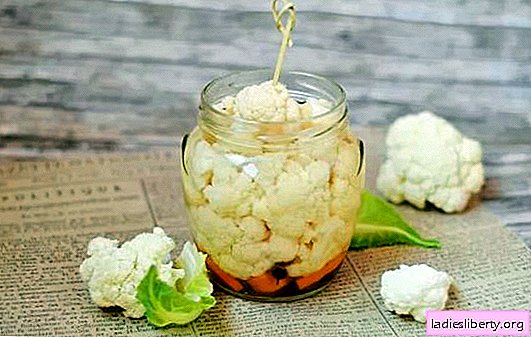
An unpleasant phenomenon that suddenly makes itself felt - a sore throat, brings discomfort and disrupts life plans.
Everyone who has at least once encountered a sore throat will prefer not to experience such unpleasant sensations anymore.
To be able to prevent this disease, it is necessary to have an idea of the causes of its occurrence and preventive measures. The medical and folk methods of treatment will be useful to everyone whom the disease took by surprise.
Sore throat: what is it?
This phenomenon does not have an unambiguous definition, since its various forms have their inherent nature and symptoms:
1. Catarrh - the most common type, recognizable by the characteristic sensation of itching, tickling, dry cough, hoarse voice and a slight increase in temperature. Mucosal edema causes voice loss, especially in children.
2. Hypertrophic - loosening of the tissues of the pharynx with the growth of the mucosa. With this form of the disease, the appearance of growths and nodules on the walls of the pharynx is characteristic. The mucus that accumulates in the throat has purulent inclusions.
3. Hemorrhagic - hemorrhage in the mucous membrane of the larynx. It is recognized by paroxysmal dry cough, sputum with blood and a sensation of a lump in the throat.
4. Diphtheria - Transition of the infection to the larynx with tonsils. Accompanied by high fever and sore throat.
5. Atrophic - thinning of the layer of the mucous membrane of the larynx, manifested in the sensations of sharpness and dryness in the throat, painful attacks of dry cough.
6. Phlegmonous - damage to the larynx, ligamentous muscle layer due to severe infection and weak immunity. It is noted by a sharp pain syndrome, inflammation of the lymph nodes and fever.
Inflammation of the throat is especially dangerous for pediatric patients. Such a violation in the body can lead to breathing problems due to the small diameter of their airways.
How does sore throat occur?
Infections in the throat can be caused by both infectious and non-infectious factors.
Infectionsthat provoke the disease are respiratory viruses (influenza, parainfluenza, adenovirus, metapneumovirus) and bacteria (pneumococcus, bordetella and hemophilic bacillus).
An inflammatory process in the throat can be caused and non-infectious causes:
• hypothermia;
• smoking;
• inhalation of chemical vapors;
• overstrain of the vocal cords during loud conversations or singing;
• preliminary laryngeal trauma;
• allergic reactions;
• dry air;
• difficulty in nasal breathing as a result of a respiratory disease;
• pathology of the digestive system, causing the release of the contents of the stomach into the esophagus;
• excessive alcohol consumption;
• age-related laryngeal changes (muscle atrophy, deformation of the vocal cords).
It is customary for doctors to distinguish two forms of such inflammation: acute and chronic.
Sharp most often occurs as a concomitant symptom of viral diseases and is characterized by seasonality.
In chronic form can outgrow acute. Constant exposure to adverse factors also contributes to this.
Diagnosis of throat inflammation
So that the treatment does not bring harm and undesirable consequences, but becomes as effective as possible, the cause of the disease should be determined by a specialist.
It is especially important not to neglect a medical examination with severe malaise, acute pain, lasting more than two days and high (above 37.6) temperature. This may be a manifestation of a bacterial infection. An abscess in the throat and large accumulations of pus can be judged by the swelling of the tongue and larynx against a background of high temperature. In this case, any delay can have a deplorable outcome.
An otolaryngologist, or ENT, will be able to make a correct diagnosis if the patient does not have time to distort the picture of the disease by self-administration of drugs.
Consultation with an ENT doctor involves:
• compilation information about the development of the disease based on complaints and the current condition of the patient;
• palpation of the neck
palpation of the lymph nodes and tonsils helps to make a more accurate diagnosis, since the painful reaction with this procedure is a symptom of a serious disease of the larynx;
• pharyngoscopy
a diagnostic procedure that does not require time-consuming and high technology, allowing you to prescribe the required course of treatment as soon as possible. Inspection of the mucous membrane of the pharynx is performed under artificial lighting with a special mirror and a spatula;
• laryngoscopy
a study of the vocal cords and larynx, consisting in the introduction of a small mirror into the nasopharynx;
• laboratory tests of blood, sputum, throat swabs
determine the origin of the inflammatory process, allow you to prescribe the most optimal treatment in the presence of a bacterial infection.
Sore throat: medications
A sore throat caused by a cold or flu virus will stop bothering the patient after a few days, even if nothing is done. This will happen due to the body's fight against the virus. Antibiotics in this case will be useless, and taking some measures to alleviate the symptoms will be very helpful:
• to reduce pain use ibuprofen and acetaminophen;
• special sprays and absorbable tablets for the throat are able to have a local antiseptic effect;
• the nasopharynx mucosa is softened with special preparations;
• anti-inflammatory syrups necessary to relieve irritation in the throat;
• rinses are prescribed to treat the throat chlorophyllipt, furacilin, lugol solution, iodinol or miramistin.
If the cause of the inflammation is a bacterial infection, the antibiotic is the main factor in the effectiveness of the treatment. Ignored streptococcus will make itself felt serious consequences.
The goal of the otolaryngologist when taking a patient with sore throat is to stop the development of the pathological process.
Treatment occurs according to the scheme:
1. The presence of a bacterial infection, confirmed during the examination, requires therapy with antibiotics such as azithromycin, amoxicillin, sumamed.
2. The purpose of antitussive drugs is determined by the dryness and unproductive cough. As necessary, the patient is prescribed drugs to reduce the viscosity of sputum difficult to separate.
3. With the manifestation of febrile symptoms, antipyretic drugs are mandatory.
The use of medicines of such a plan occurs strictly under the supervision of the attending physician.
Help sore throat at home
Homemade recipes, proven more than once, help those who sore throat took by surprise. Moreover, his character is not so serious as to call a specialist. Why not try the following helpful tips?
1. Exclusion from the menu of foods and drinks of extreme temperatures will reduce throat irritation.
2. Abundant drinking helps to eliminate toxins and speedy recovery of strength.
3. Gargling with warm soda solution will reduce the feeling of discomfort in it, and saline solution will also help sputum separation.
4. Wraps a sore spot. Here it is worth being careful not to provoke the development of an abscess. This can be done in the absence of temperature and swelling of the larynx.
5. Acupressure massage of the hand and foot. The impact is exerted on the point between the index and thumb on the hand, squeezing it strongly for 5 seconds and sharply weakening. Manipulation must be done 10 times on each brush. On the foot, the treatment point is located on the inside of the bottom of the ankle.
6. Inhalations suspend inflammation, reduce pain. It is enough for the procedure to use warm steam, honey, herbal decoction. The mucous membrane will be moistened, the swelling will become less.
Traditional medicine recipes for sore throat
Traditional healers offer the following effective recipes in the treatment of sore throat:
Means for internal use
1. Milk, egg and honey perfectly soften the pain in the throat. To 2 yolks, mashed with 1 tablespoon white sugar, add 1 tbsp. warm milk, honey and whipped protein.
2. Honey, cocoa butter and milk relieve burning in the throat, dry cough, wheezing and fever, if in 1 tbsp. warmed milk add 1 tbsp. honey and ½ tablespoon cocoa butter. Drinking a drink three times a day, you can feel relief.
3. Onions, apples and honey are good for the larynx. Rub the onion and apple on a fine grater and add honey to taste. Take the mixture twice a day for 2 tsp.
4. Mint tea due to the menthol content relieves inflammation in the throat. Dry mint leaves are brewed with boiling water and infused for 10 minutes. 3 cups per day is enough for visible results.
5. Cayenne pepper, lemon juice and honey - a hell of a mixture for various forms of sore throat. 1 tsp Cayenne pepper is poured with hot water, juice of half a lemon and 1 tsp are added to the drink. honey.
6. Ginger root is useful for restoring the mucous membrane, if it is crushed it is poured with boiling water and, given, infused, taken in small sips. It goes well with honey and lemon juice.
7. Lemon juice obtained from half the fruit is added to a glass of warm water.
8. Cranberry juice (half a cup) in combination with 1 tbsp. honey, drunk in small portions for 2 times, helps in the treatment of most sore throats.
9. Cloves, a spice from the kitchen shelf, are absorbed about 5 times daily, helping to cope with a sore throat.
Effective gargles to relieve sore throat
This method of treatment is aimed at reducing pain with inflammation in the throat.
1. Lemon juice, apple cider vinegar, black tea and fresh aloe leaf gel are mixed in equal proportions.
2. Honey with brewer's yeast: 1 tbsp. water add 1 tbsp. honey and ¼ Art. brewer's yeast.
3. Water, vinegar, honey are combined in equal proportions. Rinsing, performed about 4 times a day, reduces swelling, restores the mucous membrane.
4. Garlic infusion has a bactericidal effect. It is prepared from 2 cloves, filled with boiling water and infused for 1 hour.
5. Beetroot juice with vinegar is an excellent decongestant, anti-inflammatory and analgesic. On 1 tbsp. 4 tsp of juice is added apple cider vinegar, after 4 hours, gargle, repeating the procedure with a break of 3 hours.
6. Beet juice with sugar stops perspiration if 1 tsp is added to the hole cut out in the vegetable. Sahara. After melting the sugar in the microwave, the juice is consumed in 1 tsp. hourly.
7. Blueberry broth relieves inflammation. 2 tbsp. water fill half a glass of dried blueberries and boil for about half an hour.
8. A leaf of plantain is brewed with boiling water in fresh or dry form. An infused and cooled product is used to treat the throat every half hour.
9. The collection of chamomile, calendula and eucalyptus or wormwood, marigold and plantain is prepared from 1 tbsp. dry mixture of herbs, which is kept in boiling water and used after straining.
10. Calendula flowers are brewed like tea, with a cooled infusion, gargle the throat to reduce pain in the problem area.
Preventive measures against sore throat
By preventing the risk of the disease in time, painful sleepless nights can be avoided due to sore throat. To do this, just take the following simple rules as a habit:
1. Eat foods rich in vitamin C: citrus fruits, kiwi, rosehip infusion. A clove of garlic per day and the presence of cranberry and cranberry fruit drinks on the menu are a guarantee of reliable protection of the body from viruses.
2. Include in the menu a variety of products that supply the body with important vitamins and minerals.
3. Eat 1 tbsp daily. honey, the best antiseptic.
4. Strengthen immunity by walking in the fresh air and dress accordingly to weather conditions, trying to avoid hypothermia.
5. Do not forget about antiviral drugs and multivitamin complexes that support the body during periods of epidemic outbreaks.
6. Observe personal hygiene - thorough washing of hands after coming from the street, especially after contact with the sick. Remember that the mouth, nose and eyes are the most favorable environment for the spread of bacteria.
7. Do not neglect sleep - the best stimulant and guarantor of good condition. To strengthen the body, it is recommended to sleep at least 8 hours daily.
8. Start every morning with a charge. This will not only give vitality to the body and spirit, but will also help support the immune system.
9. When working with chemicals, use respiratory tract protection to protect your throat from irritation.
10. Refuse bad habits, avoid smoking areas and smokers.
11. Humidify indoor air in winter. When the nasal mucous membranes are overdried, the body is more susceptible to various infections.
12. To find time for a good rest and to guard against stresses that significantly weaken the immune system.
13. Gargle in the fall and winter, starting with warm water, gradually moving to room temperature.
Having developed such a line of attitude towards one’s health, one will have to remember a sore throat only when viewing an advertisement for another effective remedy that you no longer need.











